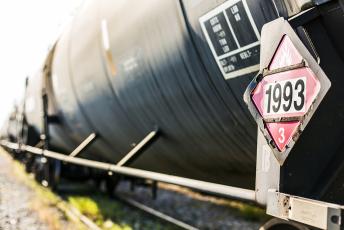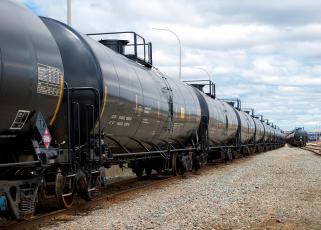As Hurricane Florence approaches the East Coast, Carolina communities are preparing for the Category 3 storm to make landfall – while nearly two million residents are under warning to evacuate. Our priority right now is supporting our industries as they work to ensure safety and fuel supplies for Carolinians and the surrounding region.
Storms of this magnitude can have an impact on the operations of local businesses and the critical infrastructure — such as pipelines, railways, ports and even roadways — that ensures the efficient and reliable delivery of necessary goods, including fuels like gasoline.
In North Carolina, there are two petroleum product pipelines that pass through the state — both originate on the Gulf Coast and work their way up along the East Coast. A third pipeline carries propane from refineries in Texas, Louisiana and Mississippi to customers in seven southeastern states before terminating to the Raleigh, North Carolina, area. Petroleum products also arrive by ship at the Port of Wilmington.
In South Carolina, refined petroleum products enter through the Port of Charleston and the very same pipelines that pass through its northern neighbor — the Colonial Pipeline and Plantation Pipeline. This midstream infrastructure plays a critical role in the Carolinas’ energy security, facilitating access to fuel supplies used for power generation, industry and drivers.
The Colonial and Plantation pipelines, which are critical to carrying refined petroleum products up the East Coast, through the Carolinas to the Northeast, are both operating normally at this time. Operators will continue to monitor the storm closely (more information on the products transported and customers served by Colonial and Plantation can be found on page 9 of AFPM’s 2018 Fuel and Petrochemical Supply Chains report). And according to S&P Global, both pipelines are able to operate in segments, which means that if one portion goes offline, product can still be delivered.
Thanks in part to the resiliency of the domestic fuel supply chain and efficiency of U.S. refining systems, along with ongoing coordination with regulators, government officials and local communities, there is no expectation at this time from analysts for U.S. consumers to feel significant cost impacts at the pump. To learn more about how gasoline prices are set, read more here.
As Hurricane Florence approaches, we are monitoring the situation closely and will provide necessary updates as available. To learn more about hurricane preparedness or how the country’s resilient fuel supply chain works, you can view our Hurricane Response Information page or visit AFPM’s midstream infrastructure report.


